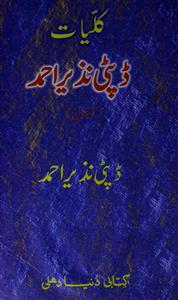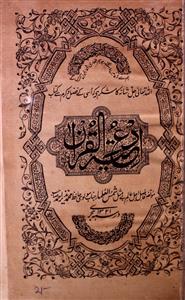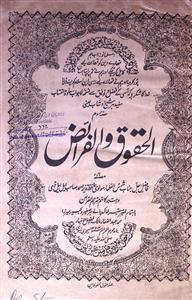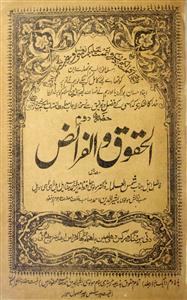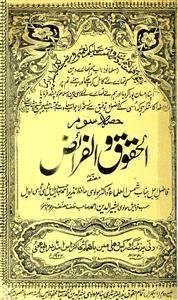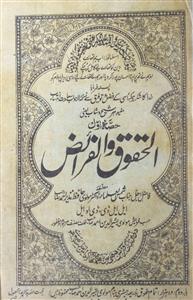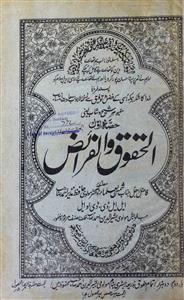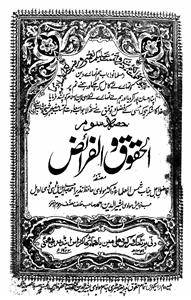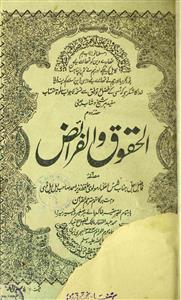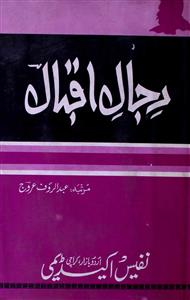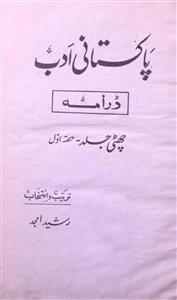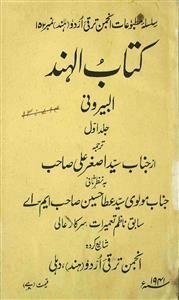 For any query/comment related to this ebook, please contact us at haidar.ali@rekhta.org
For any query/comment related to this ebook, please contact us at haidar.ali@rekhta.org
About The Book
مولوی نذیر احمد جن کا عوامی نام ڈپٹی نذیر احمد ہے ، نے اردو کو اپنے خاص طرز ادا اور زور فصاحت سے چوٹی پر پہنچا دیا۔ وہ مذہب کا گہرا شعور رکھنے کے باوجود جدت پسندی کے قائل تھے۔ ان کی قوت تحریر کو اس کتاب کے مضمون " نذیر احمد کے تخلیقی مقاصد" میں پورے طور پر اجاگر کیا گیا ہے اور مقدمہ میں ڈاکٹر سلیم اختر نے ان کی زندگی کے کئی اہم گوشوں کو اجاگر کیا ہے ۔ نذیر احمد کے ناولوں میں ان کا مخصوص اسلوب بنیادی کردار ادا کرتا ہے۔ مکالمے بڑے جاندار بالخصوص عورتوں کی زبان اور بیگمات کے محاورے اور ضرب الامثال منفرد ہوتے ہیں۔ ان کے ناول اپنے زمانے میں خاصے مقبول تھے لیکن وقت کے ساتھ تمدنی رویوں میں تبدیلی اور ادبی مذاق میں تغیر کے باعث اس مقبولیت میں کمی آئی ہے ۔ زیر نطر کلیات میں ان کے ناول شامل ہیں۔ جیسے " توبۃ النصوح ، ابن الوقت ، بنات النعش " رویائے صادقہ، فسانہ مبتلا وغیرہ۔ اسی طرح نذیر احمد کے اہم ناول ایک ہی جگہ پڑھے جاسکتے ہیں۔ ۔
About The Author
Deputy Nazir Ahmad is a pioneer in many fields: he is the first Urdu novelist and also the first visionary who created a respectable storehouse of literature for women. He is also the person who visualized a manifesto for feminism, apart from translating the Indian Penal Code into Urdu called Taazeerat-e-Hind for the first time. This book was too well received both by the British administration and judiciary.
Nazir Ahmad was born on December 06, 1836, in Bijnaur district of Uttar Pradesh. He received his early education from his father, Maulavi Saadat Ali, who was himself a teacher. Following this, he joined Delhi’s Aurangabadi madrasa where he was taught by Maulavi Abdul Khaliq. During his stay in Delhi, he used to live in a mosque located in Punjabi Katra. During those days, students had to collect their daily meals from different families in the locality. Nazir Ahmad also followed this practice and got his food every day from the house of Maulavi Abdul Khaliq. There, a girl used to make him ground spices every day in lieu of the favor he received from there. She also sometimes hit his fingers with the grinding stone whenever she noticed him slow at his job. Nazir Ahmad has himself recounted this in one of his writings:
“Just as I entered the threshold, she would pull me inside and make me do a job. She would neither spare me, nor give me a morsel unless she made me grind a sear or two of spices. God alone knows how much of spices she collected from all over to make me grind. If at all, I stopped for a while in doing my job, she would hit my fingers with the grinding stone and put me to great pain”. Interestingly enough, this girl later became his wife.
After completing his education at the madrasa, he joined Delhi College where he also got a scholarship to continue his education. After spending eight years in Delhi, he moved to Gujarat where he got a job for eighty rupees per month. On getting his promotion later, he was sent to Kanpur as Deputy Inspector of madrasas. The cataclysmic events of 1857 brought him back to Delhi. Later, the Nizam of Deccan called him to Hyderabad where he was offered a salary of Rs.1240/- a month. Here, he was assigned the job of inspecting and preparing detailed accounts of the functioning in the offices. He worked assiduously and got his promotion as chief Talukadaar. During this period, he also taught the children of the Nizam. When Nazir Ahmad was in Jalon, he needed some books for children which he could not find anywhere. This made him realize the need for writing such books which she actually did and produced Mirat-ul-Uroos and Muntakhib-ul-Hikaayaat.
Nazir Ahmad wrote reformative novels. He laid special emphasis on the education of girls as well as on training them in handling domestic affairs. His important novels include Mirat-u-Uroos, Nabaat-un-Naash, Taubat-un-Nusooh, Fasana-i-Mubtala, Ibn-ul-Waqt and Rooya-i-Saadiqa.
Mirat-ul-Uroos is his most famous novel. Its characters, Akbari and Asghari, are extremely relevant even today. The government gave a prize of rupees one thousand to Nazir Ahmad on the publication of this novel. Many scholars consider it to be the first novel ever written in Urdu which was first published in the year 1869.
Ibn-ul-Waqt is his other well-known novel which satirizes the blind aping of Western culture. Some people think that this novel is an indirect criticism of Sir Syed Ahmad Khan but Nazir Ahmad denied this categorically because he was not only influenced by Sir Syed’s movement but also an advocate and active participants in his mission. Being an ardent supporter of Sir Syed, he also made practical contributions from the platform of Muslim Educational Conference.
Apart from writing novels, Nazir Ahmad also wrote Qanoon-e-Income Tax, Qanoon-e-Shahadat, and translated the Holy Quran. Most of his works were well received and also translated into Puanjabi, Kashmiri, Marathi, Gujarati, Bangla, and Bhakha. In 1884, the English translation of Taubat-un-Nusooh was published with a preface by William Muir. His Mirat-ul-Uroos was also translated into English and published from London in 1903.
The area of Nazir Ahmad’s operation was huge. In recognition of his extraordinary services to life and letters, the British government decorated him with the title of Shams-ul-Ulema. At the fag end of his life, he suffered a paralytic attack and passed away on May 03, 1912, in Delhi.
 For any query/comment related to this ebook, please contact us at haidar.ali@rekhta.org
For any query/comment related to this ebook, please contact us at haidar.ali@rekhta.org
